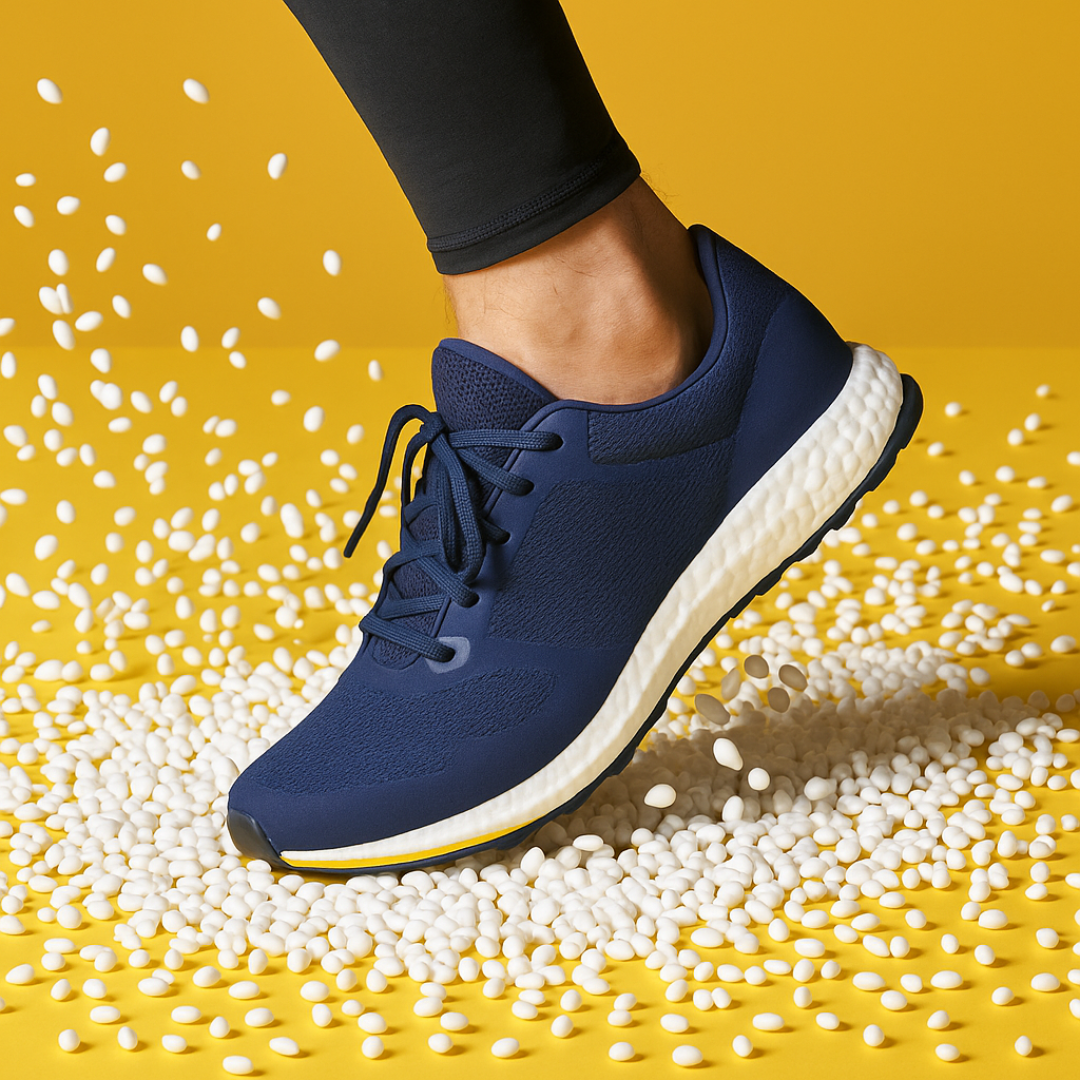FCC
segments
we are tireless in our pursuit of innovation, transforming ideas into materials that will change the world.



Thermoplastic elastomers are polymer-based compounds that, when heated to their molten state, can be molded and turned into various parts and products. They are almost as flexible and elastic as traditional rubber, but with much greater versatility in relation to their processing, resulting in endless applications. With knowledge acquired in more than 30 years, we have developed a wide range of products, meeting the most rigorous quality controls.




FCC pioneered the production of super rubberized TR compound in Brazil, being a reference of quality and excellence in the market. Flexible and elastic like rubber, the TR compound is a thermoplastic up to 40% lighter than vulcanized rubber, and is extremely versatile, being produced in several hardnesses. In addition, TR presents rubbery touch and easy processing and pigmentation, being widely used in soles of women's and men's casual and children's shoes, insoles and in other diverse applications such as toys, tools, pet items, among others.



TPE combines characteristics of flexibility and elasticity similar to rubber, and processability similar to thermoplastics, making it an ideal candidate to replace vulcanized rubber in many applications. TPE is widely used in sealing parts and in parts where grip is important. It is highly valued for applications in dynamic extruded, blown or injected parts that require flexibility andsoft touch. The high quality TPE produced by FCC meets ANVISA and FDA standards for contact with food, and the Brazilian Pharmacopoeia for contact with skin and mucous membranes, and is widely used in hygiene and health applications, home appliances, white goods, among others.




TPV is a thermoplastic elastomer that has an elastomeric phase (dynamically vulcanized EPDM), highly dispersed in a Polypropylene (PP) based thermoplastic polyolefin matrix. This thermoplastic matrix allows the TPV to be processed through traditional plastic processing methods, as well as enabling its recycling. On the other hand, the elastomeric phase gives the material its softness and elastic response characteristics. FCC TPV has easy adhesion in PP and is resistant to temperatures up to 135°C, making it highly recommended for applications that require high thermal resistance, such as parts near an automobile engine. It can be used in complex parts via injection, blow molding or extrusion, ensuring excellent surface finish. FCC meets the global quality standards required by automotive and infrastructure standards.




TPU is a polyurethane thermoplastic that possesses excellent mechanical and chemical properties, such as elasticity, transparency, resistance to oils, grease, and abrasion, for example. Its high degree of adaptability combines seemingly contrasting characteristics of rubber and plastic, in terms of flexibility and rigidity, making it an easily processed material suitable for many environments. For this reason, it is widely used in a variety of applications, ranging from consumer goods such as footwear and cell phone covers, to complex industrial applications such as conveyor belts.




ETPU FCC (Expanded Thermoplastic Polyurethane) is the result of a combination of international technology and Brazilian innovation. A pioneer in the production of the material in the Americas, FCC is setting up the continent's first ETPU plant, reinforcing its legacy of innovation and high performance. Formed by expanded microspheres of thermoplastic polyurethane - TPU, ETPU offers lightness, comfort and exceptionalrebound, making it ideal for sports and casual footwear seeking performance and well-being. Manufactured in Brazil, ETPU FCC guarantees quality, consistency and sustainability. Now, customers in Brazil and the Americas can count on this locally produced technology, with the FCC seal of excellence and reliability.

FCC's PVC is easy to process, pigmented and has a good finishing, besides being phthalate free. The product presents excellent productivity and thermal stability, delivering quality, versatility and competitiveness in the most diverse footwear applications. FCC has different PVC lines: crystal with glassy appearance, more used in the manufacturing of soles and accessories, and micro-expanded PVC, generally used in soles, because it makes the pieces lighter. Characteristics and properties, such as hardness, for example, can be specified according to the customer's needs.



